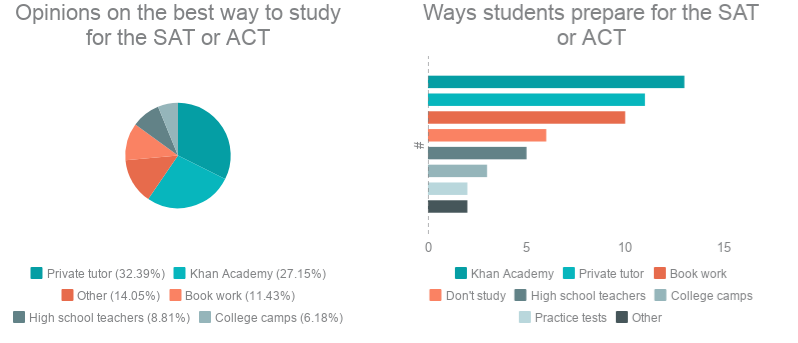SAT and ACT Success
How to do well during the age of standardized tests
February 26, 2018
Ben Forstner ‘18 was only one of many EGRHS seniors and juniors who recently studied for the upcoming ACT exam.
“I took a practice test from my prep book and saw I didn’t do well on the science section, so I read through the science chapter,” Forstner said. “I would recommend taking some practice tests and timing yourself so you know how to manage your time.”
Although this worked well for Forstner, other students may still be wondering about test taking strategies. What is the best way to study for standardized tests? Which test should you take? These are stressful decisions to make, especially since most students have limited time on their hands. They must make informed choices on how to study for the exams that will impact their higher education futures.
Fortunately, tutor Barbara Cone gives students guidance with these decisions. According to Cone, choosing between different study resources isn’t as important as knowing what material you have to study. The three basic skill areas required for the ACT or SAT are math, secondary vocabulary, and reading. The first thing to do is find your weakest area or areas. Most students tend to struggle in math for several reasons.
“There’s parts of the SAT where you cannot use a calculator. So if you don’t know multiplication tables, it’s going to be very difficult,” Cone said. “You also have to remember to take two or three steps for math questions. You get something done and you’re not done yet. You always have to go back on a math problem and see if you’ve actually answered it, because that first result is often one of the choices. You also must be careful when you’re squaring a negative number, because a negative two squared is not a negative four.”
Students also sometimes struggle in vocabulary because the higher-level words are unfamiliar and not used colloquially in a school setting.
“Learning how to go through a reading passage and find the important things so that you can answer the questions correctly is another important thing to know,” Cone added.
When choosing which test to prepare for, Cone recommends focusing on the required SAT, but that the ACT is also a viable option.
“Knowing the college to which you’re applying is key,” she said. “They may want both. But students today don’t have the preparation tools that they used to have for the ACT, such as the Explorer in the 8th grade and the PLAN in the 9th and 10th.”
Knowing how to study and doing the little things is also important.
“If you start early enough, you can study less than thirty minutes a day,” Cone said. “If it’s closer to the test date it’s going to be thirty minutes. Don’t start the last week, because that increases your anxiety. The night before the test stay home, and in the morning have your normal breakfast.”
After taking the test, students sometimes don’t receive their desired score. While disappointing, test-takers should be encouraged by the fact that improvement is possible.
“My younger son increased his score each time he took the test by over a hundred points,” Cone said. “So yes, you can do that.”


